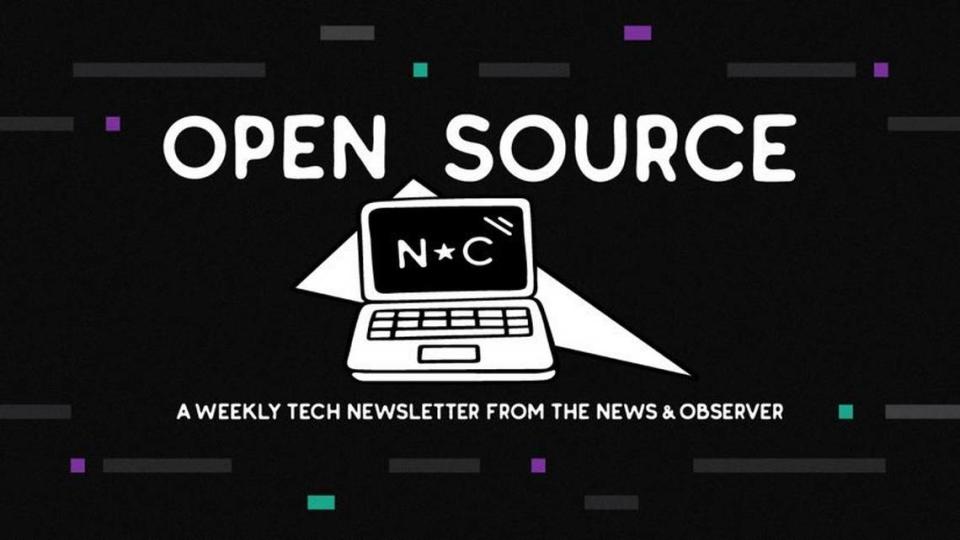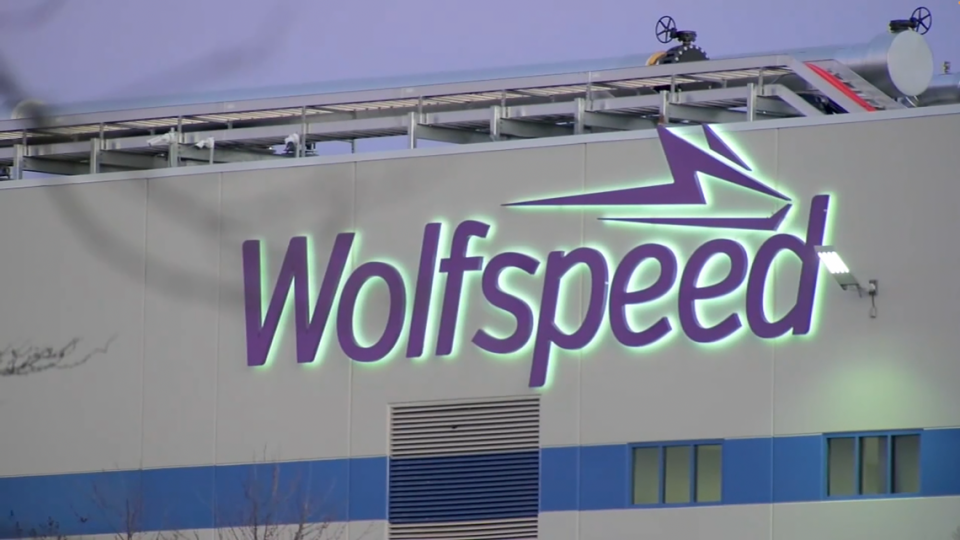Open Source: Sued over his noncompete clause, a Raleigh employee reflects after FTC rule
I’m Brian Gordon, tech reporter for The News & Observer, and this is Open Source, a weekly newsletter on business, labor and technology in North Carolina.
“Believe me, it was a frustrating year of my life.”
In 2022, the Raleigh-based software company Prometheus Group sued three former employees in North Carolina Business Court, alleging they had violated the company’s noncompete agreement. One of these workers was Randy Gibson, a sales engineer in his late 50s, who left Prometheus to take a job at an Australia-based software development firm.
Prometheus accused Gibson of violating his noncompete, which barred him from working for two years at “any business related to the creation, development, distribution, or services of enterprise application software designed to improve enterprise asset management capabilities.” The company applied this restriction to “the entire world.”
North Carolina allows blue-penciling, which some argue encourages employers to write very broad restrictive terms — terms judges might then cross out while leaving less restrictive terms in place.
In March 2023, Judge Julianna Earp ruled against Prometheus, finding the software company had “overreached” in its noncompete agreement with Gibson. Specifically, the company’s restriction against joining companies who “directly or indirectly” competed with Prometheus was found to be unenforceable, as was its global geographic scope.
“To be enforceable, non-competition covenants must be narrowly tailored to protect a legitimate business interest of the employer,” Earp noted. She added, “North Carolina’s blue pencil rule cannot be used to salvage this far-reaching non-compete.”
In Gibson’s opinion, Prometheus viewed its noncompete more as a “cudgel” than as a valid mechanism to protect trade secrets.
“I don’t really believe that they were concerned with winning the lawsuit,” he said. “The idea was first of all to make my life miserable because I left, and second, to scare every other employee not to leave.”
Prometheus did not respond to requests for comment.
Gibson says he spent more than $70,000 fighting the lawsuit. The company terminated its other two noncompete lawsuits in 2023 as well. “A silver lining is I believe my verdict prevented Prometheus from bringing similar noncompete lawsuits against other former employees,” he said.

Noncompetes are common, affecting roughly 30 million Americans, including former employees at Triangle companies Bandwidth, IQVIA and Wolfspeed, and major area health care systems like UNC Health. But their end could be near. This week, the Federal Trade Commission adopted a rule that effectively bans noncompete clauses for almost all workers. Groups like the U.S. Chamber of Commerce have already filed lawsuits to block the rule, and experts say the matter is far from settled.
UNC Health spokesperson Alan Wolf said the health system “is reviewing the new rule, which won’t go into effect until late August at the earliest, and monitoring the legal challenges.”
Don’t rip up your agreement just yet.
“I think it’s very, very premature to assume (noncompetes are finished),” said Zeb Anderson, a partner at Smith Anderson in Raleigh. “It’s very much we need to wait and see.”
Activist investor stirs up Wolfspeed
The company is growing. The company is constructing a new manufacturing factory in Chatham County very quickly. But the share price of Wolfspeed, the Durham semiconductor chipmaker, has floundered over the past two years.
“It’s been one hit after another,” said George Gianarikas, an analyst who covers the company for the Boston-based Sustainability Research. In September 2022, a share of Wolfspeed sold for $120. Today, it hovers around $25. This week, the prominent activist investment firm Jana Partners sent a letter to the company’s board advocating for a change in corporate direction, including a potential sale.
“I would say when there are incredibly valuable assets, like Wolfspeed, with a stock that’s underperformed, this happens,” Gianarikas said. “Because smart enough people know this is a very, very important company that has high asset value and there is potential interest in it being acquired by other companies.”
After taking stakes in companies, activist investors rally support from larger shareholders like pension funds, endowment funds or big asset managers to achieve their aims. Goals may vary, from seeking executive shakeups to adjusting dividend payouts to selling off parts of the company.
Analysts say Wolfspeed’s share price has suffered from a confluence of supply shortages and demand concerns. The chipmaker is pioneering production of a larger 200-millimeter semiconductor wafer made from silicon carbide, but production has scaled at a slower pace than the market had desired. And now that supply is poised to increase from the incoming Chatham facility, some worry demand for these chips could falter as sales of electric vehicles waver.
“We call it investor exhaustion,” said Jack Egan, who covers Wolfspeed as a research analyst at Charter Equity Research in Colorado. “It kind of sets in when it’s just quarter after quarter of something goes wrong.”

The N&O reached out to Jana Partners multiple times to review its letter to Wolfspeed but did not hear back. In response to the letter, Wolfspeed released a statement saying its leaders “maintain an open dialogue with, and value constructive input from, our shareholders.”
“The company continually evaluates options to enhance long-term value and is committed to acting in the best interests of all our shareholders,” the statement continued.
What stake Jana Partners has in Wolfspeed is not yet public but should become clearer through public finance disclosures in the coming weeks. And Wolfspeed is releasing earnings next Wednesday. Let’s see how investors respond.
Clearing the cache: First Citizens soars, Amazon hires
Amazon tells The News & Observer it has already hired more than 1,000 workers at its new inbound cross dock facility in the Johnston County seat of Smithfield. The 620,000-square-foot plant, which opened in late February, will receive inventory before it’s shipped to fulfillment centers. It is the second inbound cross dock in North Carolina, and the first in the greater Triangle-area. Wages start at $17 an hour.
More jobs news: On Tuesday, the state approved a $1.75 million incentive package for the firm Innovative Construction Group to hire 157 people over the next five years in western Chatham County. Innovative’s parent company, PulteGroup, primarily sells single-family detached homes. Chatham and Siler City are pitching in around $1.1 million in local incentives.
No one would mistake North Carolina as a union hotbed, but the state with the second-lowest labor organization rate saw two union campaigns file in the past week or so: 62 full-time workers at Transcontinental Matthews near Charlotte and 90 workers at 10 Roads Express in Greensboro.

Earnings reports brought mixed news for two companies with Triangle ties. IBM, which owns Raleigh’s Red Hat and employs thousands locally on its own, saw its stock slip 8% Thursday after posting disappointing revenue. On the positive side, Raleigh’s First Citizens Bank beat profit expectations, and its share price jumped 8% the same day, reaching an all-time high. First Citizens’ purchase of Silicon Valley Bank last year appears to be going quite well. Not bad for a “boring” bank.
Microsoft has terminated an office lease for 40,000 square feet in Morrisville, the Triangle Business Journal reports.
VinFast CEO Pham Nhat Vuong said he’ll commit $1 billion to the high-spending, North Carolina-bound electric vehicle maker. Vuong is the wealthiest person in Vietnam. VinFast is a new EV company that you can read more about in the roughly 15,500 stories I’ve written about them over the past two years.
State law required NCInnovation, the new nonprofit seeking to commercialize university research, to receive at least $25 million in private funding. The organization says it has exceeded this target.

National Tech Happenings
By a vote of 2,628 to 985, a Volkswagen plant in Tennessee became the first foreign-owned auto facility in the South to unionize.
TikTok will be banned in the U.S., unless it’s sold, after President Joe Biden signed bipartisan legislation.
The New Yorker wrote about Unreal Engine, the visualization tool from Cary’s Epic Games. The magazine spoke to Epic CEO Tim Sweeney and other company executives about their hopes for the metaverse and extending Fortnite as an immersive platform. Can Unreal cross the uncanny valley — and what would that mean for our non-virtual world?
Thanks for reading!

 Yahoo Finance
Yahoo Finance 